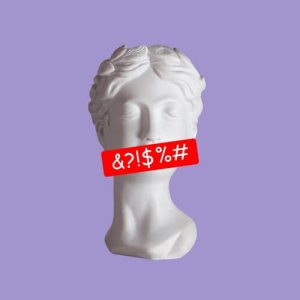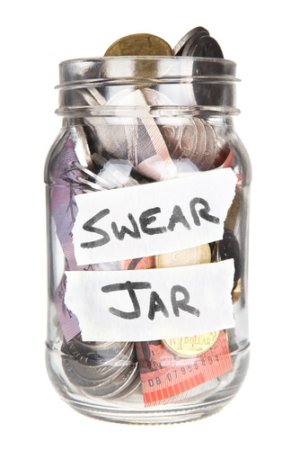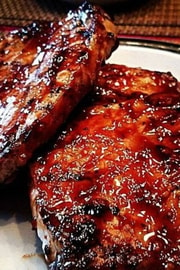Nasty Words and Silly Gestures
- Replies 17
Note from the Editor:
This article was kindly written for the SDC by member @Doctor Alan.
I never swore when I was young, probably because my parents never did – not even when they got really angry. Adults don’t realise how much of the ‘Monkey see – Monkey do’ there is in a child’s upbringing. When I was too young to know what it meant, I brought the infamous ‘C’ word home. I’d thought it just meant ‘silly’, and it wasn’t until I was a little older that I realised why my parents had gone so quiet when I uttered it! Of course, in a world where even revered and admired celebrities appear on TV and use swear words that not that many years ago would have got them either ‘beeped out’ or sacked, it’s no wonder our children and teens use the ‘F’ word as a form of punctuation. This fact was most pronounced while I was teaching. I warned the students on many occasions that they really would have to find a better word since the ‘F’ word had lost a lot of its potency! I suggested ‘Nong’ or some other word that nobody recognised. Neville Shute (great Australian writer!) used to use expressions like ‘You muckers’ and, more commonly on the TV: ‘Stop mucking about’! My mother used to say, ‘Well, I’ll be jiggered!’ as an expression of surprise. In old movies, the phrase ‘A jolly good “Rogering”’ referred to what an aloof young lady apparently needed (at least in the eyes of these disrespectful lads)! Of course, ‘Damn’ is not so often used these days, but it was far more potent in its day – a nasty word? Probably.
Definition
The dictionary definition of a swear word is: ‘a word of a kind used to express anger or other strong emotion and regarded as coarse, blasphemous, or otherwise unacceptable in polite or formal speech’. Of course, this definition is full of holes. For instance, ‘regarded as’ could be construed very differently depending on your social background, ethnicity, etc.
When I was a teacher, I was once informed that certain words being used by the student cohort from Aboriginal and Torres Strait Islander languages were considered offensive. I wouldn’t have had a clue about the meaning of the words without their having told me!
My personal definition of a so-called ‘swear word’ is that it is ‘a word that some people feel they should be offended by’ – or at least, show their distaste for the words when in company with others. In the privacy of their homes, these people would probably use all sorts of similar words if and when they had a verbal altercation with their partner.
Are ‘swear words’ useful?
Apparently, people who are in great pain would be given some relief by swearing. As an example, if you missed a nail and brought a hammer down on your thumb, the utterance of a swear word or a string of such words communicates with an area of the brain known as the amygdala to release adrenaline. This flood of hormones subsequently leads to a soothing, analgesic effect.
It is said that spewing obscenities has the potential to impact our bodies as well as our minds, providing stress relief and even a slight boost in physical performance! The problem here is that you have to use really ‘bad’ words that you wouldn’t normally use or aim at some really stupid person after he’s run his car into yours, for instance. As I have already mentioned, the contemporary overuse of the ‘F’ word has certainly ‘diluted’ its effectiveness. It’s also quite satisfying to swear at somebody and know that they understand how bad you feel. It’s ‘more honest’ than ‘pussy-footing’ around an incident that has really upset you.
How long have ‘swear words’ been around?
The answer to that is: ‘hundreds of years!’
The Mayans and Aztecs used derogatory terms related to a person’s supposed physical attributes or to call attention to private acts that would not be mentioned in polite conversation. Such a word is ‘Tuzkeb’ – a Mayan composite word, where ‘tuz’ means ‘negative, false’ and ‘keb’ means penis. So, ‘tuzkeb’ is a derogatory word that probably meant something like ‘small penis’ in English. However, it is said that the ‘masters of obscenity’ were the Ancient Greeks. They would use expressions that brought attention to a private act and highlight a supposed deficiency in the performance of that by their ‘target’ audience. Therefore, they were not particularly ‘dirty’, but just ‘inappropriate’. It is interesting to note, though, that they didn’t have an expression for ‘f***-off’; instead, they would tell the unfortunate person to ‘go to the crows!’. (I assume that was because crows would be the first creatures to attack an unattended corpse in those days, so they probably used the expression to wish somebody dead!)
In ancient Rome, offensive words were generated as a result of the inherent culture. It was ‘normal’ for men to be dominant and women to be passive. Expressions that contradicted this behaviour, such as a passive male or a dominant female, were offensive.
The Middle Ages focussed more on ‘profanity’. (In Latin, the word profanus translates to ‘outside the temple,’ signifying words that desecrate sacred precepts.) By the Middle Ages, religion was an increasingly dominant force in society, and religious oaths — promises before a deity that your words were true and you’d do what you say — that were made falsely became the predominant form of profanity. For instance, you might say: ‘by the blood of Christ’ or ‘by God’s wounds’. (Today, a very common Australian expression is ‘Strewth’, which literally means ‘God’s truth’ and originated in England in the late 19th century.) These were the most obscene expressions you could use in a religious society.
Over the intervening years, however, the incomprehensible power of religious oaths became less ‘shocking’. This decline probably started during the Protestant Reformation of the 1500s, with traditional religion playing a less central role in people’s lives.
Obscenity:
Obscenity originated during the Renaissance (a period in European history that formed a bridge between the Middle Ages and the modern era between the 14th and 17th centuries)
and swearing started to more closely resemble modern profanity. Anatomical descriptive words – including the ‘C’ word, began to be used as a ‘swear word’. Shakespeare was quite fond of using the word ‘pox’ in his plays – a sort of ‘wishing he’d get the pox’ or similar, that was written: ‘A pox on him.’
Of course, sex and defecation can be described in polite and contorted language, but obscene words cut through the niceties; when we ‘make love’ or have a ‘happy ending’ to a massage, our basic, natural urges are dressed up as something far more genteel.
In more recent times, ‘obscene words’ have become far more common. This probably originated in the two World Wars, where foreign correspondents reported faithfully the way the soldiers spoke to one another. The ‘F’ word was beginning to be used between men in even polite conversation.
Slurs:
Slurs are among the most offensive of all profanity, according to several studies that rank the offensiveness of English swear words. These derogatory terms refer to members of groups perceived as being defined by their race, gender, ethnicity and sexual orientation, among others. This type of offensive language is definitely on the rise throughout the world, and it’s judged to be more offensive than other forms of ‘swear words’.
Language evolves, and words that were once common descriptors can become offensive over time as societies recognise their historical weight. To call somebody ‘Queer’ used to be a big no-no, but now it’s even listed in the LGBTQ+ (Lesbian, Gay, Bisexual, Transgender, Queer) acronym descriptor.
Gestures:
Isn’t it ridiculous that holding a certain finger up and waving it at somebody, or even two fingers a certain way around, causes offence? You can use any other finger except the middle one, and you can make a Churchillian-style ‘V’ sign’, and it’s quite acceptable. Doesn’t that highlight how arbitrary social rules can be? The idea that one finger can spark outrage while another is harmless is a strange quirk of human communication. I honestly don’t understand the meaning of the two-finger gesture anyway. Perhaps I should categorise it under the same heading as foreign swear words – if I don’t understand it, it can’t be ‘nasty’!
There have been several football players who have suffered suspension for making ‘inappropriate’ hand gestures or salutes at the end of games – Cristiano Ronaldo, Mehir Demeral, Georgios Katidis and Barry Furguson spring to mind. The ‘Nazi salute’ performed by Katidis was a really bad mistake – the passage of time – many more decades – is the only way that could become acceptable, and I have to admit, it does still generate widespread abhorrence, and rightly so.
Final thoughts:
It has been said that: ‘It may seem strange that, in a society where both celebrities and members of the public reveal their innermost thoughts on a daily basis, words describing perfectly ordinary physical acts still have the power to offend.’ I agree. Despite all our so-called advancements in technology and medicine, we still haven’t got over that power to offend. It’s stupid!
Comedy shows used to be funny – clever comedy didn’t have to continually refer to what I call ‘below the belt’ humour. ‘QI’ and ‘8 Out of 10 Cats Does Countdown’ are examples of ‘cringeworthy’ comedies like this, in my opinion. It’s like telling the same joke over and over again. It’s just not funny anymore. My wife and I call it ‘student humour’. On the other hand, I’ve been to two Billy Connolly concerts while he was in his heyday, and I laughed so much that my stomach hurt! Loads of ‘F’ words, of course, but his ‘below the belt’ humour was really about himself and his capacity to deal with situations we’ve all encountered and not liked to talk about. Perhaps I’m a little hypocritical after all!
When I was a child, I was taught that: ‘Sticks and stones can break my bones, but names can never hurt me.’
Some words are used lightheartedly, like calling me a ‘Pom’ are OK, but many others are best left in the past.
Personally, as they say, I don’t care what they call me, as long as they don’t call me late for dinner!
Note from the Editor:
Love Alan’s writing and want to read more? You might also like to read:
Alan G.’s Member Spotlight: ‘Almost Famous’
The Ice Cream Job: The Tech Guy – Dr Al
The Lucky Man: The Tech Guy – Dr Al
‘Ten Pound Pom’ Hostel Living: The Tech Guy – Dr Al
Many Happy Returns of the Day!
Reaching for the Stars!
Sportsmanship, Manners, and Respect
My great-grandfather’s journal of 1908: The Tech Guy – Dr Al
Christmases I’ve Had
Pocket Money
University Days









